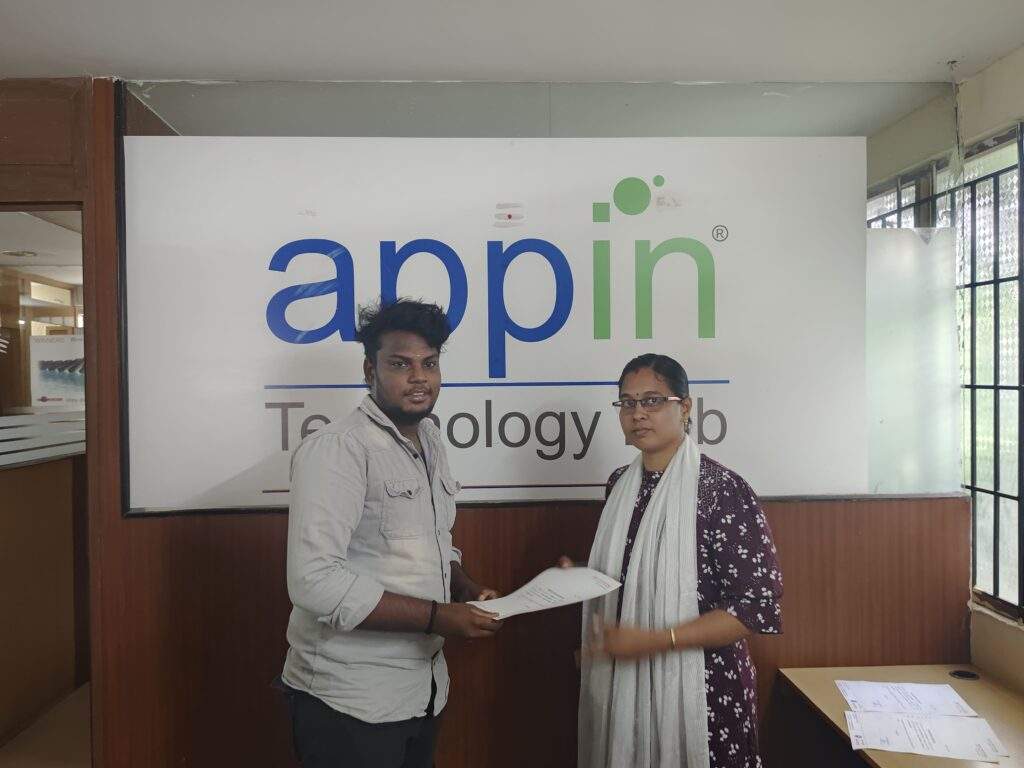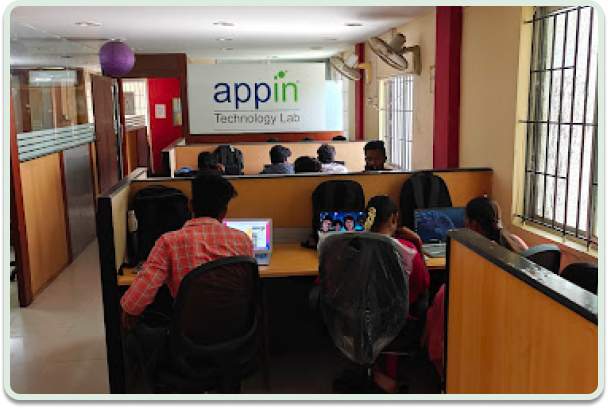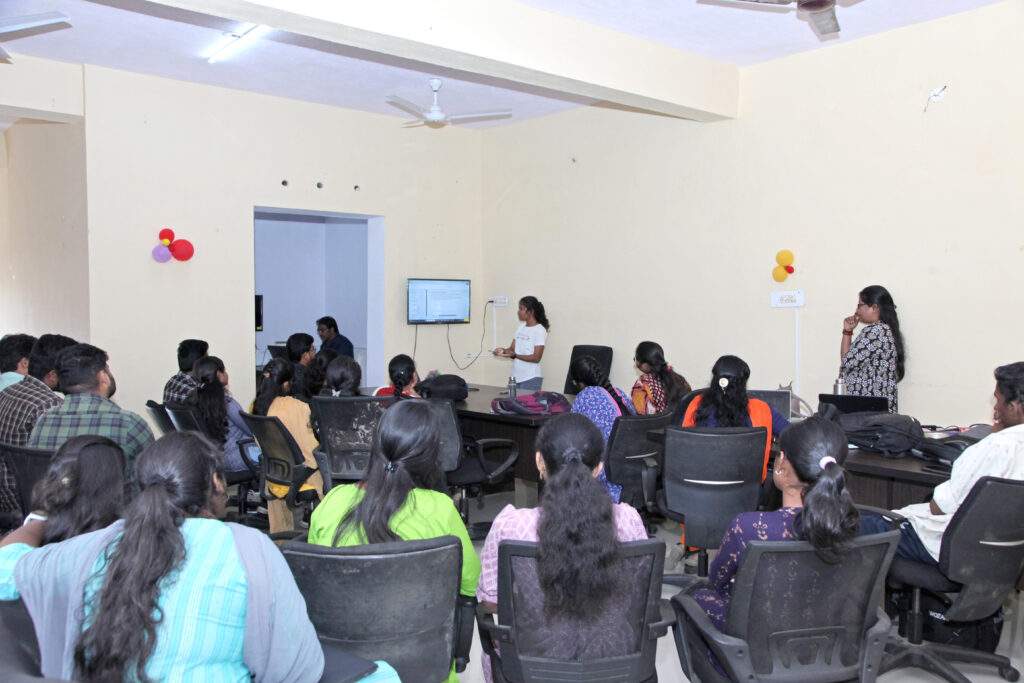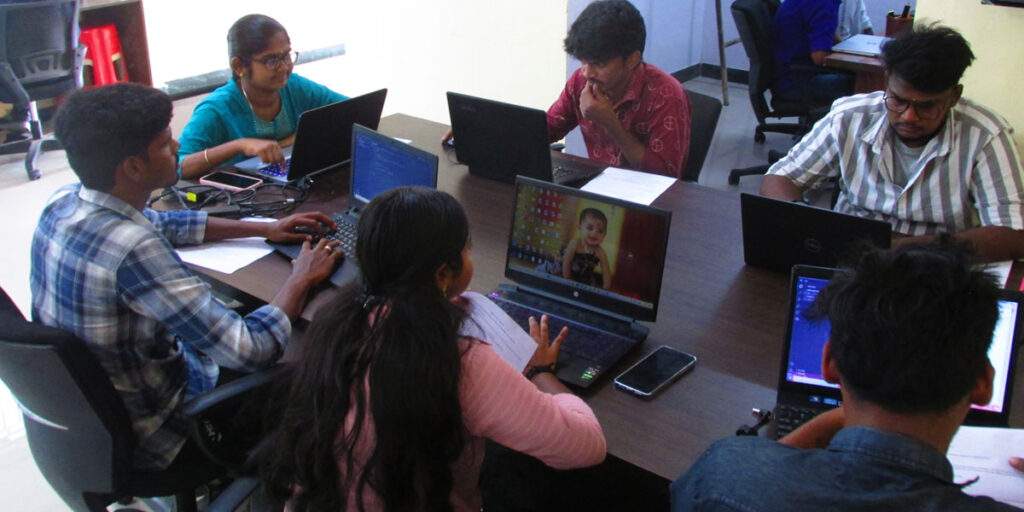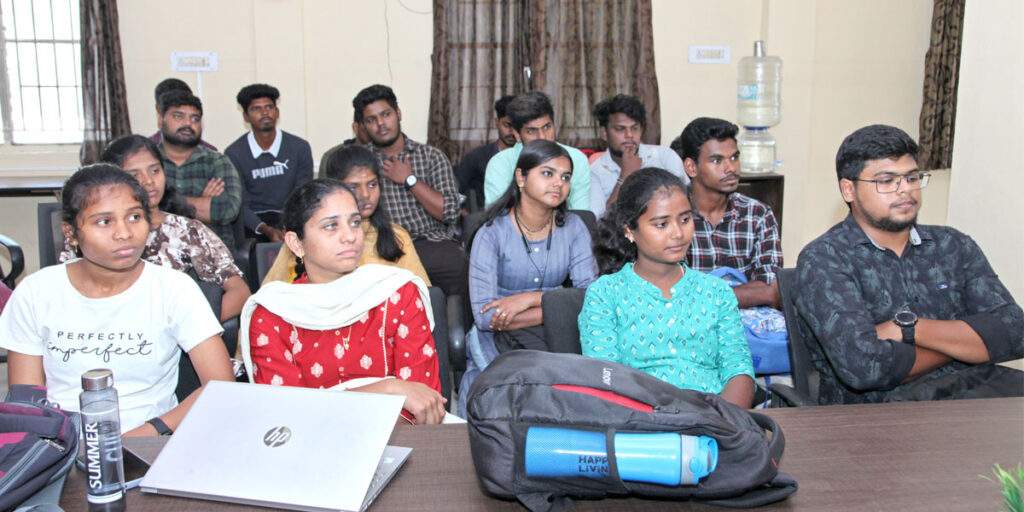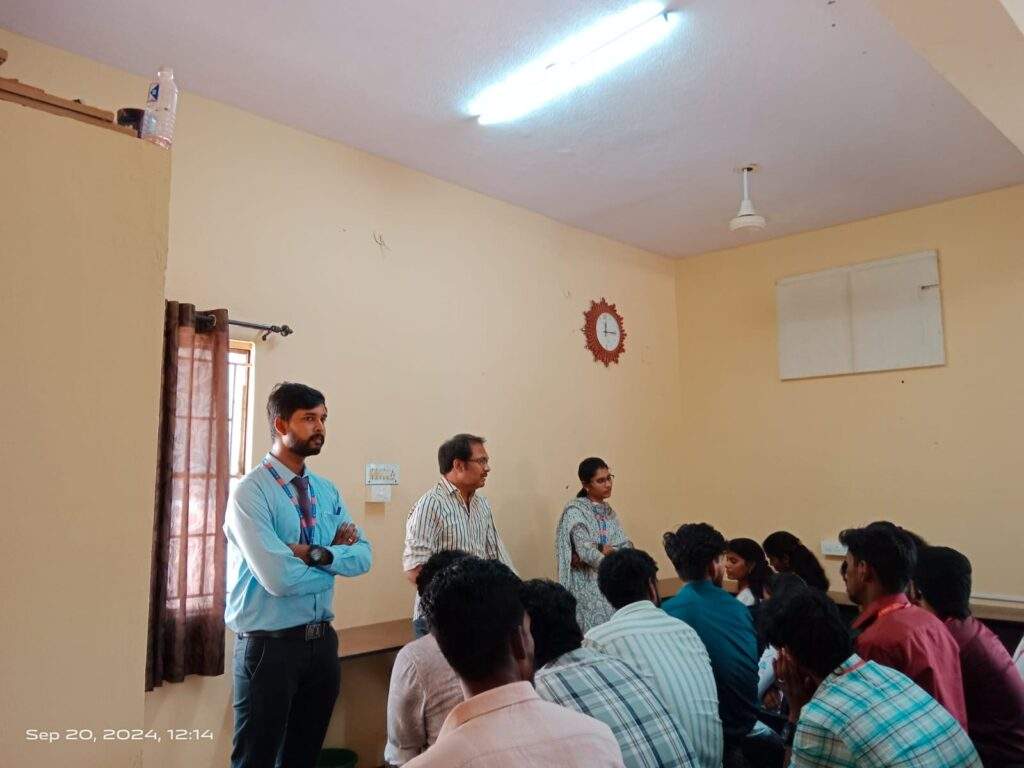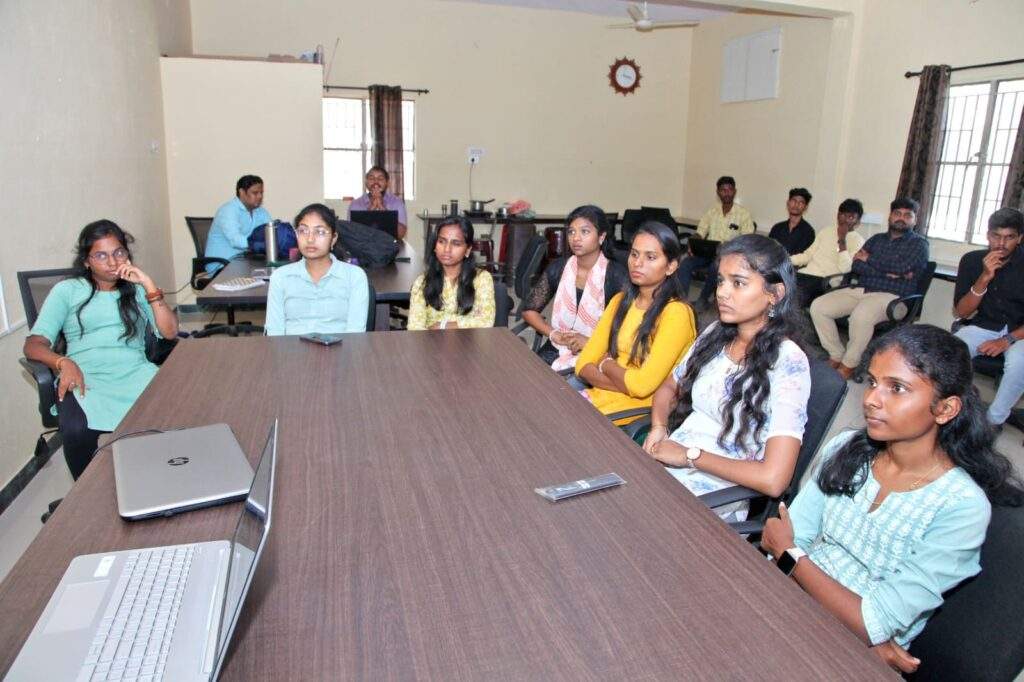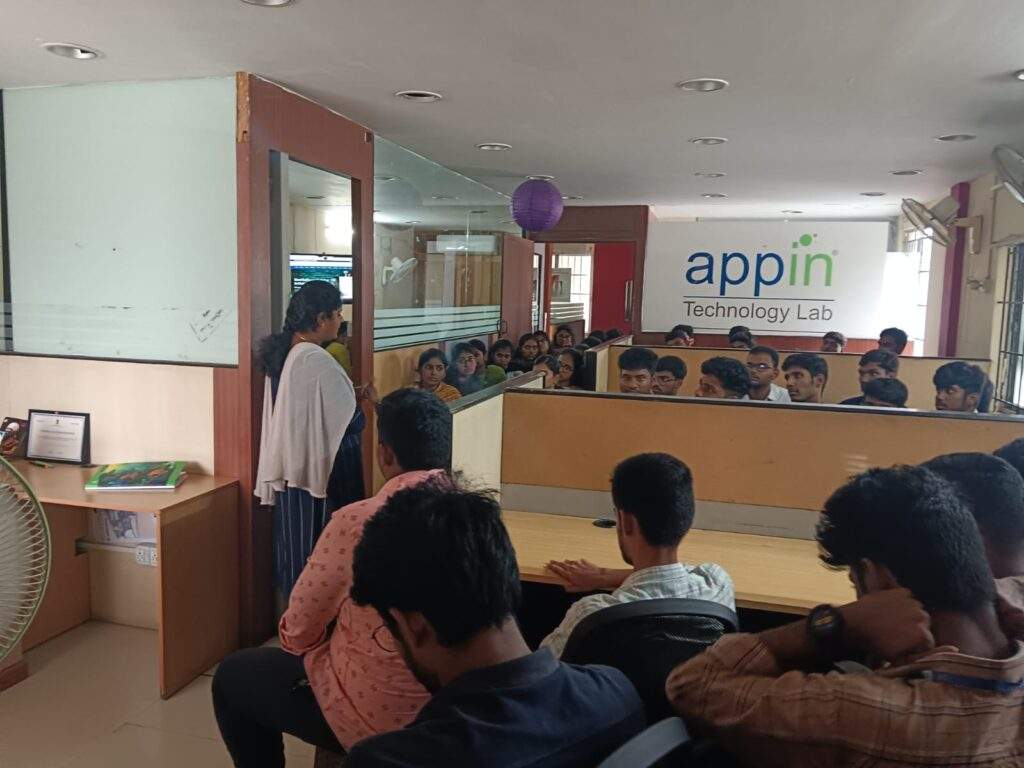Welcome to Appin Technology’s HR Internship in Coimbatore
Human Resources (HR) refers to the department within an organization responsible for managing the company’s employees and their needs. HR professionals are involved in various aspects of employee management, including recruitment, hiring, training, performance evaluation, employee relations, benefits administration, and compliance with employment laws and regulations. Essentially, HR ensures that the organization’s human capital is effectively utilized and that employees are supported in their roles.
For those looking to enter this dynamic field, pursuing an HR course in Coimbatore can provide the essential skills and knowledge needed to excel in HR management. These courses cover key HR functions and prepare individuals for various roles within the HR department, enhancing their career prospects in this vital industry.
Unlocking Your HR Potential: Why an HR Internship Is Essential for Career Success
- Hands-On Experience: An HR internship provides practical, real-world experience that complements theoretical knowledge gained through coursework. Interns learn how HR functions operate in actual organizational settings, which is invaluable when transitioning from academic study to professional practice.
- Skill Development: Internships allow individuals to develop and hone a wide range of skills essential for HR roles, such as recruitment, employee relations, training and development, compensation and benefits administration, HRIS management, and compliance with employment laws. These skills are crucial for success in HR careers.
- Networking Opportunities: Internships provide opportunities to build professional networks within the HR field. Interns can connect with HR professionals, managers, and peers, potentially leading to mentorship, career guidance, and future job opportunities.
- Industry Insight: Internships offer insights into different industries and organizational cultures. Interns gain a deeper understanding of how HR practices vary across sectors and learn to adapt their skills and knowledge to different environments.
- Resume Enhancement: Having HR internship experience enhances a student’s resume and makes them more competitive in the job market. Employers value practical experience, and an internship demonstrates initiative, dedication, and readiness for entry-level HR positions.
- Career Clarity: Internships help interns clarify their career goals and aspirations within the HR field. Through exposure to various HR functions and responsibilities, interns can identify areas of interest and focus their career development efforts accordingly.
- Professional Growth: Internships foster personal and professional growth by challenging interns to apply their skills in real-time situations, solve problems, and adapt to workplace dynamics. They gain confidence in their abilities and learn to navigate professional challenges.
- Potential for Job Offers: Many organizations use internships as a recruitment pipeline for hiring full-time HR professionals. Interns who perform well and demonstrate a strong work ethic and cultural fit may be offered permanent positions upon graduation.
- Ethical and Legal Understanding: HR interns gain exposure to ethical dilemmas and legal considerations in HR decision-making. They learn about fairness, confidentiality, diversity and inclusion, and compliance with employment laws and regulations.
- Contribution to Organizations: Internships benefit organizations by bringing in fresh perspectives, enthusiasm, and a willingness to learn. Interns contribute to HR projects, assist in day-to-day operations, and support organizational goals, thereby adding value to the HR team and the organization as a whole
Key Advantages of Pursuing an HR Internship for Career Development
- Exposure to HRIS (Human Resource Information Systems): Gain hands-on experience with HRIS platforms used for employee data management, payroll, and analytics.
- Project Management Skills: Learn to manage and prioritize HR projects, enhancing organizational skills and efficiency.
- Understanding of Employee Benefits Administration: Get insight into designing, implementing, and managing employee benefits packages, including health insurance and retirement plans.
- Conflict Resolution and Employee Relations: Develop skills in handling workplace conflicts, employee grievances, and fostering positive employee relations.
- Talent Acquisition Strategies: Participate in recruitment activities, including sourcing candidates, conducting interviews, and evaluating applicants.
- Training and Development Initiatives: Assist in designing and delivering employee training programs to enhance skills and productivity.
- Labor Law Compliance: Gain knowledge of labor laws and regulations, ensuring organizational compliance and mitigating legal risks.
- Performance Management Systems: Learn to implement performance appraisal processes, feedback mechanisms, and performance improvement plans.
- Diversity, Equity, and Inclusion (DEI) Initiatives: Contribute to DEI programs aimed at fostering a diverse and inclusive workplace culture.
- HR Metrics and Analytics: Use data analytics to measure HR metrics such as employee turnover rates, retention, and workforce productivity, aiding strategic decision-making.
Charting the Course: The Exciting Future of HR in a Changing Workplace Landscape
- Technology Integration: HR is increasingly adopting technology such as AI, machine learning, and HRIS to streamline processes like recruitment, performance management, and employee engagement.
- Data-Driven Decision Making: HR professionals are leveraging data analytics to make informed decisions about talent acquisition, employee development, and organizational strategy.
- Employee Experience: There is a growing emphasis on enhancing the employee experience through personalized benefits, flexible work arrangements, and initiatives that promote well-being and work-life balance.
- Remote and Hybrid Work: The rise of remote and hybrid work models is reshaping HR policies and practices, requiring adaptations in areas like communication, collaboration tools, and performance management.
- Diversity, Equity, and Inclusion (DEI): Organizations are prioritizing DEI initiatives to create inclusive workplaces that value diversity in backgrounds, perspectives, and experiences.
- Skills Development and Lifelong Learning: HR is focusing on continuous learning and upskilling to meet evolving job roles and technological advancements, fostering a culture of learning within organizations.
- Agile HR Practices: Agile methodologies are being applied to HR processes, allowing for faster adaptation to changes in the business environment and improving responsiveness to employee needs.
- Remote Recruitment and Onboarding: Virtual recruitment processes and digital onboarding strategies are becoming standard practices, enabling organizations to hire talent globally and efficiently integrate new hires.
- Employee Well-being and Mental Health: HR is playing a critical role in supporting employee well-being and mental health, offering resources, programs, and initiatives that promote a healthy work environment.
- Strategic Business Partner: HR is increasingly seen as a strategic partner to business leaders, contributing to organizational goals through workforce planning, talent management, and aligning HR strategies with overall business objectives.
Get Upto 20%* Discount in all courses.
Limited offer. T&C Appy.

Quick Enquiry
Get Upto 20%* Discount in all courses.
Limited offer. T&C Appy.

Hr Course FAQ
The HR course at Combater is a comprehensive training program designed to equip employees with the knowledge and skills necessary for effective human resource management. The course covers various topics, including recruitment, employee relations, performance management, compliance, and organizational development.
The HR course is ideal for current HR professionals, managers, team leaders, and employees aspiring to move into HR roles. It is also suitable for anyone looking to gain a deeper understanding of human resource practices and policies.
There are no strict prerequisites for enrolling in the HR course. However, having a basic understanding of business operations and prior experience in a managerial or HR-related role can be beneficial.
The HR course covers a wide range of topics, including:
- Introduction to Human Resources
- Recruitment and Selection
- Employee Relations
- Performance Management
- Training and Development
- Compensation and Benefits
- HR Compliance and Legal Issues
- Organizational Development
- Strategic HR Management
The HR course is delivered through a combination of online lectures, interactive workshops, case studies, group discussions, and practical assignments. This blended approach ensures a well-rounded learning experience.
Call 9597271533 to know any offer available at this time.
Yes, the HR course includes various assessments such as quizzes, assignments, case studies, and a final exam. These assessments are designed to evaluate your understanding and application of the course material.


